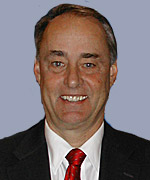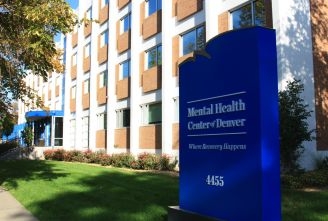You are here
 PRA: What's your educational background and why did you choose psychiatric rehabilitation as your field/profession?
PRA: What's your educational background and why did you choose psychiatric rehabilitation as your field/profession?
Starks: I have a BS in Psychology from the University of Colorado and a Masters in Rehabilitation Counseling from the University of Northern Colorado. I graduated at a time in Colorado when community mental health was just beginning and it was an innovative and hopeful time to work in psychiatric rehabilitation. I had the opportunity to attend an early meeting of the group which went on to create IAPSRS, which became PRA. I have been very fortunate to continue work in the field for the past 44 years. During this time I have seen the transition from a focus on illness in the inpatient setting to a focus on recovery at a progressive community mental health center. As a vice president of the Mental Health Center of Denver, I was excited to help create our mission: Enriching Lives and Minds by Focusing on Strengths and Recovery.
PRA: Tells us about the jobs you held before you were practicing psychiatric rehab and recovery.
Starks: I grew up in a ranching community in northeast Colorado and had enough experience moving cattle on horseback and driving tractors through wheat fields two miles long to know that I wanted to work in social services! Other than working at a half-way house for adolescents between my Bachelor and Masters degrees, my entire career has been in the field of psychiatric rehabilitation.
PRA: Tells us what's unique about your organization program?
Starks: The Mental Health Center of Denver is the national center of excellence in recovery focused community mental health. It made this commitment in 2000 when current CEO, Dr. Carl Clark, challenged the leadership team to achieve this goal. In the past 15 years the organization has transformed to the recovery focus and is now moving toward a conceptual framework of “Well Being” for all consumers of all ages, as well as for our employees. MHCD has also been voted “Best Place to Work” in Denver by its employees for the past three years. MHCD is the first mental health center in the country to develop recovery outcome measures and now licenses these measures to other centers throughout the country. My position is the Vice President  for Rehabilitation and Reaching Recovery. “Reaching Recovery” is the name we use to license the recovery measures and provide recovery transformation consultation. We recently entered a partnership with Netsmart to provide the recovery measures into their electronic medical record to make them available to both Netsmart and non-Netsmart EMR vendors. Our supported employment program has received the Science and Service award from SAMHSA. We recently created a program to combine rehabilitation and treatment services for young adults in one facility with a psychiatric rehabilitation framework. What's the greatest challenge you face in your role?My greatest challenge is to help other community mental health centers transition to true recovery-focused services in a way that makes it possible for the people we serve to have a full life in spite of a mental illness, and to have outcome measures which tell the story of recovery.
for Rehabilitation and Reaching Recovery. “Reaching Recovery” is the name we use to license the recovery measures and provide recovery transformation consultation. We recently entered a partnership with Netsmart to provide the recovery measures into their electronic medical record to make them available to both Netsmart and non-Netsmart EMR vendors. Our supported employment program has received the Science and Service award from SAMHSA. We recently created a program to combine rehabilitation and treatment services for young adults in one facility with a psychiatric rehabilitation framework. What's the greatest challenge you face in your role?My greatest challenge is to help other community mental health centers transition to true recovery-focused services in a way that makes it possible for the people we serve to have a full life in spite of a mental illness, and to have outcome measures which tell the story of recovery.
PRA: What do you consider your greatest accomplishment in your role?
Starks: My greatest accomplishment is being part of a team which has created a recovery-focused community mental health center and also developed the tools to measure this process. I am also part of a team which has developed a network of centers around the country who share these measures and makes it possible to learn recovery practice from each other.
PRA: What keeps you in this field, despite the challenges in your role?
Starks: I am very excited about working with Netsmart to implement the use of recovery outcome measures and true recovery practice for a much larger network of behavioral health providers across the country. Netsmart has the capacity to provide customer support, as well as marketing and sales on a much larger level than MHCD. They are equally committed to recovery transformation for behavioral health.
PRA: If you weren't doing what you do, and making a living/salary were not a consideration, what would you be doing instead or what would you do in retirement?
Starks: At this point in my career, I am doing exactly what I want to be doing and am excited to do so rather than retire. In an ideal retirement, I would continue to do some of what I do now while spending the balance of my time pursuing areas of interest with my partner and true love.


